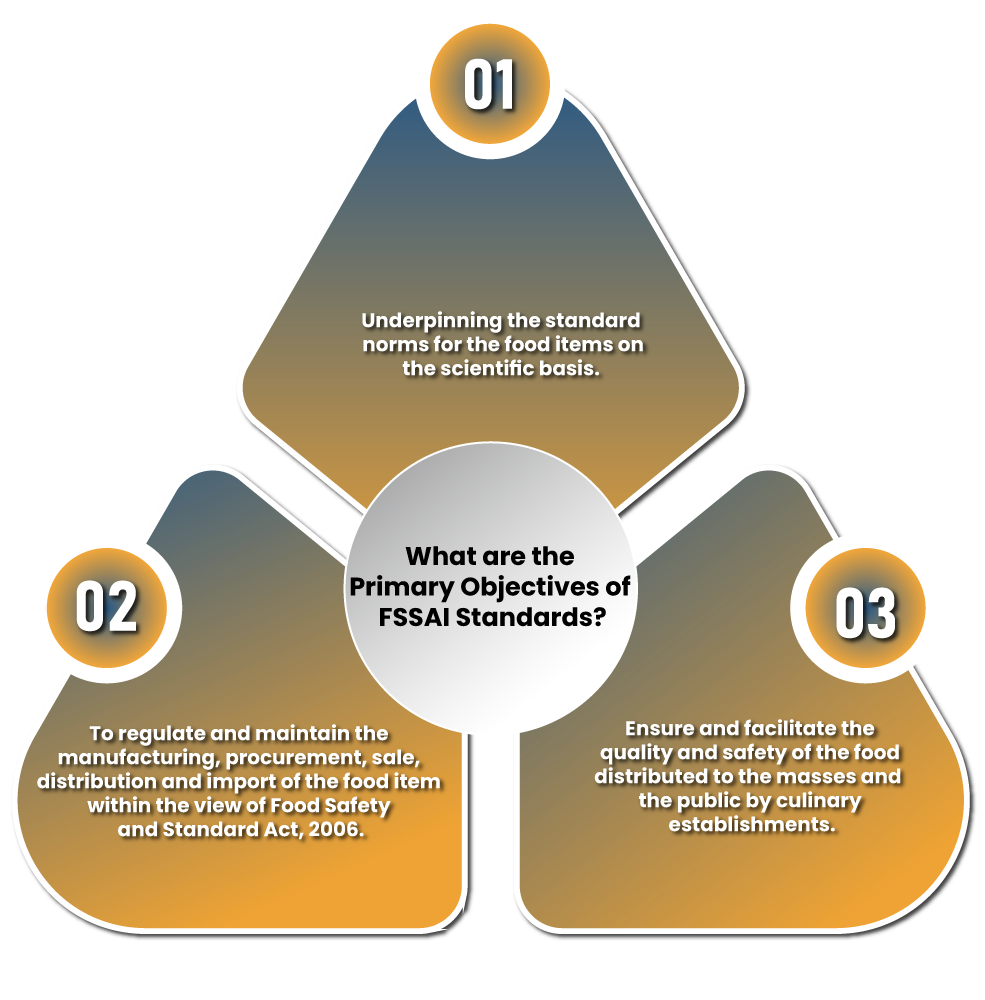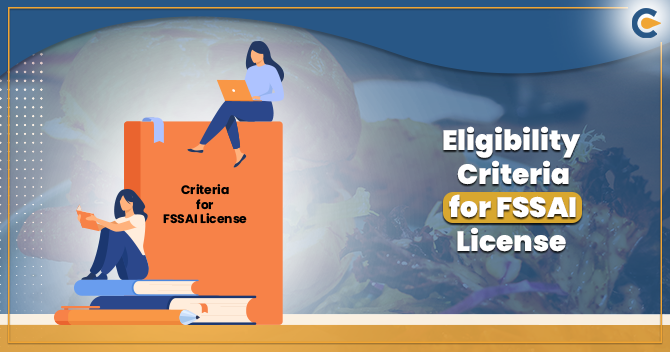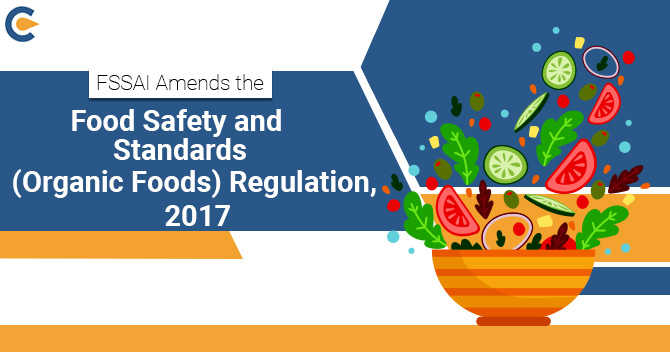Every food establishment in our country has to abide by the regulations provided by the FSSAI. The FSSAI is an apex institution that underpinned various guidelines for food safety and standards in our country. FSSAI is collectively managed by the panels of scientists, technicians, subject matter experts, and a central advisory committee. This institution aims to curb malpractices like adulteration in the various categories of food items ranging from dairy products to poultry and meat products. In this write-up, we will provide a detailed explanation of the Eligibility Criteria for FSSAI license as well as the cost aspect.
FSSAI comes into existence in 2006 and since then it holds the position of the de facto regulator for food safety and standards in the country. It also plays a huge role in creating awareness about food safety among the masses through intuitive campaigns such as Food Safety on Wheels (FSW). Anybody who wishes to enter into the food industry has to obtain the FSSAI license without exception.
What are the Primary Objectives of FSSAI Standards?


All food restraints & establishments must adhere to the standards and norms of the Food Safety and Standard Authority of India. Also, these are bound to avail the FSSAI license to become legally eligible for transacting food-related business in India. FSSAI license acts as legit evidence for any establishment engaged with the food business. It shows the business is legally permitted to perform food-related activities including manufacturing, procurement, and selling of food items to the masses on a commercial basis.
Now let’s moved ahead to the next section that will provide you information on the Eligibility Criteria for FSSAI License in detail.
Eligibility Criteria for FSSAI License
Currently, FSSAI grants three different types of registration that cater to a wide range of companies based on business size and yearly revenue. The following list provides information on Eligibility Criteria for an FSSAI license.
FSSAI Basic Certification
FSSAI Certification is accessible to those entities which come under micro and small business categories. If you already have an established food business in the state which is earning annual revenue of less than 12 Lakh, then this certification is mandatory. FSSAI Certification would confer the legal status to your business and allow it to perform the required activities without any hassles. After obtaining the certification, the business would become liable to meet all FSSAI regulations[1] and health safety standards.
FSSAI State License
FSSAI State License is available for medium-sized companies whose annual turnover is between Rs 12 lakhs and Rs 20 crores.
FSSAI Central License
FSSAI Central License apex form of the FSSAI registration and it is only available to food business operators (FBOs) which operate on a larger scale and have a large pool of consumers. This license is generally availed by the bigger organization dealing in FMCG, food chains, and hotel business. The food business operators reaping more than 20 crores of yearly revenue must obtain this license without exception.
We have transformed the aforesaid section into a tabular form so that you can get a better understanding of the eligibility criteria:
| FSSAI LICENSE | TURNOVER CRITERIA |
| Basic License | Up to 12 lakh |
| Central License | Greater than 20 crores |
| State License | Up to 20 crores |
Cost of Availing New FSSAI License
The Indian food industry is immensely diverse as it comprises of all type of firms ranging from small establishments to large enterprises. Regardless, it important to obtain FSSAI food license to operate as a legal entity in the country. The following table displays the fee structure of new FSSAI food license. The table clearly indicates that the fee for the new FSSAI food license varies as per turnover and production capacity of the business.
| PRODUCTION Level | FEES (PER YEAR) |
| More than 1 Metric Tons/day | Rs. 5000 /- |
| Less than 1 Metric Tons/day | Rs. 3000 /- |
| Hotels with 4 star or less | Rs. 5000 /- |
| Rest of the establishments such as restaurants, clubs, canteens, boarding houses, offices, institutions, colleges, banquet halls, roadside food vendors | Rs. 2000 /- |
How FSSAI Performs its Function Across India?
Indian authorities are comprised of municipal bodies and local governing bodies. The FSSAI adheres to the decentralized operational structure. This institution has its local associates spanning all over the nation who work cohesively with the local authorities. Furthermore, they also undertake several tasks like inspecting the food items, auditing safety & standards checks for businesses seeking FSSAI registration.
Conditions That Comes with FSSAI License
- The license holder is liable to display a true copy of the license at the business premises.
- FSSAI’s authorized personnel have the right to access the food establishment
- The FBOs must inform the authority about the changes being made in the activities in any course of time.
- FBOs must ensure that no product is being served to the mass which is beyond the scope of the license.
- Maintain an optimum level of cleanness within the premises and take care of worker’s Hygiene as specified in Schedule – 4 as per the category of the food business.
- There should be a separate logbook for recording production level, raw materials utilization, and sales respectively.
- Food vendors must beware of adulterated or poor quality raw material.
- Ensure testing of microbiological contaminants in edible items based on risk assessment and historical data to ensure delivery or production of safe foods via own for FSSAI notified labs at least once in six months.
- The temperature of the edible items should not be compromised at any stage of their supply chain. Ensure to store them at the controlled temperature until they left the shelves of the vendor or FBOs.
- The manufacturer/distributor/importer shall buy & sell food products only from, or to, registered vendors.
Conclusion
Food joints and eateries are one of the fastest-growing businesses in India at present. People find it enjoyable to dine outside in different establishments like a restaurant, fast food corner, and even some roadside dhabas. FSSAI is aware of the fact that the foods prepared at these establishments are susceptible to contamination and even adulteration to some extent. It’s the job of these establishments to avert these anomalies upfront and prepared for high-quality for the masses.
Since the majority of the food vendors or manufacturers are under the constant pressure of generating revenue, they often opt to overlook basic food safety standards. That’s a costly trade-off, especially for a well-established entity. After the advent of the FSSAI, the perception of food safety has been changed a lot. Now people have become more concerned about their health and food safety. So, we can conclude by saying that the FSSAI is extremely important for any entity that wants to sustain longer in the food business. Feel free to get in touch with Corpbiz professional to avail more detail on the Eligibility Criteria for FSSAI license.
Read our article:Procedure for Getting Online FSSAI Central License in India











